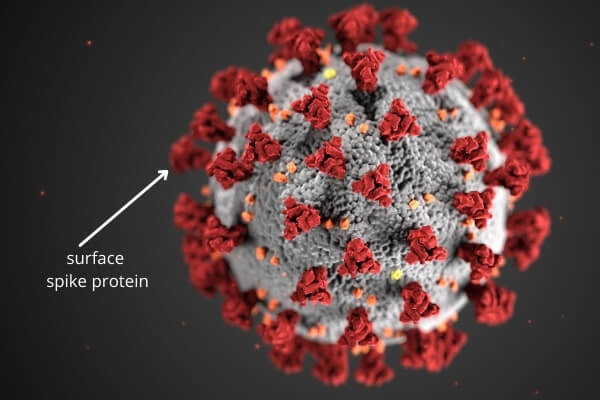While it is known that COVID-19 vaccines grant a high degree of protection against the SARS-CoV-2 virus, the factor that determines the efficacy or effectiveness of these vaccines has stumped scientists and researchers.
Queensland University researcher Dr Pranesh Padmanabhan along with collaborators Prof Narendra Dixit (Indian Institute of Science, Bengaluru) and Dr Rajat Desikan (Certara, UK) have been developing mathematical models of infectious diseases to understand the underlying mechanisms and optimise treatments for more than a decade.
“This experience allowed us to develop a model describing the workings of COVID-19 vaccines swiftly,” Dr Padmanabhan told Indian Link.
The team analysed over 80 different antibodies generated against the surface spike protein of SARS-CoV-2, the virus that causes COVID-19.
“Based on this analysis, we developed a model to predict vaccine-induced antibody responses in vaccinated individuals,” he said.
“We then extended the model to predict how vaccine-induced antibody responses control the dynamics of infections in infected individuals.
“This allowed us to predict the protection conferred by eight approved COVID-19 vaccines in clinical trials.”

READ ALSO: CSIRO’s Dr Ruhani Singh invents new vaccine storage technology
In the past, the task of predicting vaccine efficacy proved too taxing because vaccines induce diverse sets of antibodies within and across individuals, and each antibody has a different capacity to control virus growth in the body.
“This diversity of antibody responses was a challenge to quantify,” Dr Padmanabhan said.
The new model quantitatively captures the reported efficacies of eight major COVID-19 vaccines (Pfizer-BioNTech, Moderna, Astrazeneca, Sputnik V, Novavax, Johnson & Johnson, CoronoVac, Covaxin), and more importantly, generates quantitative links between the vaccine-induced antibody responses and the resulting protection against infection.
Dr Padmanabhan says this should help expedite future vaccine development and optimize vaccination strategies.
“We started this work because it can have a huge health impact,” he added.
What’s the next step?
“Our model is designed to predict vaccine efficacies against the original SARS-CoV-2 strain. It turns out in addition to antibody response, the other arms of our immune system, such as T cell response, may be at play to determine the vaccine efficacies against the new SARS-CoV-2 variants.
“The immediate next step will be to expand the framework to incorporate key immune responses necessary for the protection against new variants,” Dr Padmanabhan said.
The mathematical biologist is interested in understanding mechanisms underlying several infectious and neurodegenerative diseases. Lately, he’s been focusing on COVID-19 and Alzheimer’s disease.
“There are currently no disease-modifying treatments for Alzheimer’s disease. By combining computational modelling, advanced imaging, and biological experimentations, I aim to improve our understanding of Alzheimer’s disease and help develop new treatments,” he revealed.
Dr Padmanabhan is from Coimbatore and received his PhD at the Indian Institute of Science in Bengaluru.
“It is a fantastic institute to start one’s career,” he mused.
He was the recipient of a three-year University of Queensland fellowship which brought him to Australia in 2015, and allowed him to join the Queensland Brain Institute.
He started his career as a chemical engineer. Over the years, he developed an interest in using mathematics to understand biological systems and what might go wrong in disease conditions.
“I realised that technological advancements have created a unique opportunity to identify mathematical principles, or even laws, of biological systems. I am quite excited to find out if there are universal laws of biology,” he said.
You can read more about the team’s research here.
READ ALSO: Indian nuclear scientist and team invent new fire-retardant material




